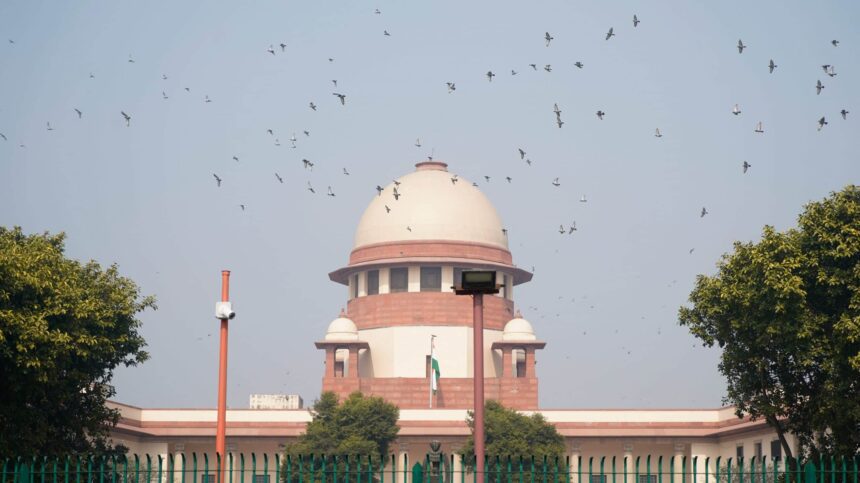On Tuesday, the Supreme Court of India took the step of transferring petitions challenging state laws on religious conversion from various High Courts to itself, stating that it is already reviewing similar cases involving laws from Uttar Pradesh, Himachal Pradesh, Madhya Pradesh, Uttarakhand, and other states.
A bench consisting of Chief Justice B.R. Gavai and Justice K. Vinod Chandran was informed about the pending petitions during the hearing. Senior Advocate Indira Jaising, representing the petitioners, requested their transfer, a move that the State of Madhya Pradesh did not oppose. Subsequently, the Court ordered that all such petitions be consolidated under its jurisdiction.
The Supreme Court indicated that it would deliberate on requests to stay the enforcement of anti-conversion laws in six weeks, while simultaneously examining a petition filed by Citizens for Peace and Justice challenging these laws across multiple states.
In 2021, the Court permitted the Jamiat Ulama-i-Hind to intervene in the matter, citing instances of harassment faced by Muslims due to these laws.
During the proceedings, Senior Advocate C.U. Singh raised serious concerns regarding the Uttar Pradesh Freedom of Religion Act, asserting that it functions effectively as an anti-conversion statute. He noted that the law introduces a minimum sentence of 20 years, imposes bail conditions akin to those outlined in the Prevention of Money Laundering Act (PMLA), and shifts the burden of proof to the accused.
Singh remarked, “For anyone in an interfaith marriage, bail is virtually impossible. Several states, such as Rajasthan, have enacted similar laws recently.” He warned that such provisions allow for complaints to be lodged against individuals, leading to instances of mobs targeting people during festivals.
Advocate Vrinda Grover supported Singh’s arguments, mentioning that challenges had also been raised against both the Uttar Pradesh law and Haryana’s conversion rules, with an application seeking a stay on their implementation.
In response, Chief Justice Gavai asked the states to submit their replies to the petitions. At this moment, Advocate Ashwini Upadhyay interjected, requesting the Court to impose a ban on deceitful and wrongful religious conversions.
However, Chief Justice Gavai questioned the feasibility of such a determination, asking, “Who will decide whether a conversion is deceitful?” Singh responded by clarifying that while the current petitions address the constitutional validity of these laws, “Mr. Upadhyay is attempting to legislate through his plea.” The bench concurred with this assessment, and Chief Justice Gavai clarified, “Mr. Upadhyay, your plea and application are de-tagged.”
Earlier this month, the Rajasthan Assembly passed its anti-conversion bill, although it has not secured the necessary assent to become law.
During India’s Universal Periodic Review by the United Nations Human Rights Council, member states have consistently urged the Indian government to ensure that anti-conversion laws respect the right to freedom of religion and belief. These laws are viewed as potentially infringing on both India’s Constitution—which guarantees freedom of religion—and international human rights treaties, including the Universal Declaration of Human Rights (UDHR) and the International Covenant on Civil and Political Rights (ICCPR).
Tags: Supreme Court, anti-conversion laws, petitions, state laws, legal challenges
Hashtags: #Supreme #Court #hear #petitions #state #anticonversion #laws










